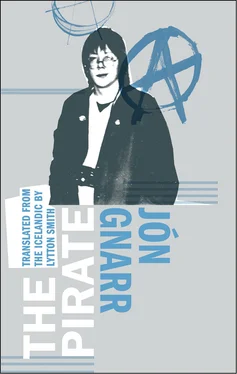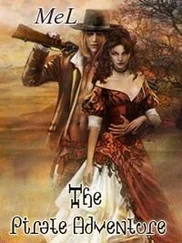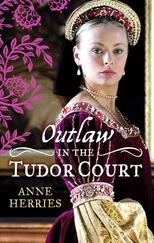Rural people have no sense of fashion. They’re not hippies, though. They just all wear men’s clothes, even the kids and the women. It’d be like me wearing Mom and Dad’s clothes, cut down for me. I was always embarrassed by my parents, especially my dad. I couldn’t imagine how I’d feel if we lived in the country. I suspected I’d be ready to kill myself. I certainly wouldn’t know anything about punk. There aren’t any libraries in rural areas. Then again, I probably wouldn’t learn anything about sheep and that crap if I lived out there, either.
The old man driving didn’t say a word to me. We were silent the whole way. In the evening, we reached a town. I had no idea where we were. The old man opened the trunk and handed me my bag.
“Well,” he said, and we went inside.
Everything looked the way I’d imagined. The farmer was in oversized terylene pants and woolen socks. There was a hole in his sweater, and he had stubble. His hands were covered in cuts. The woman was also in pants, though not oversized, but narrow. There was an old guy there, also in terylene pants. There wasn’t anyone else in the household. They welcomed me with open arms and asked for good news about the family. I assured them that all was well, though in fact I didn’t know what the question meant. Isn’t everything always good news unless someone is dying? Obviously it’s never all good; you can always find something, like for example someone is sick. But no one talks about that. People aren’t interested. They just want to hear that everything is okay. In every way. Everywhere.
The next few days were spent getting to know the people and seeing the place. It wasn’t your typical farm. They didn’t have any sheep and only a few cows. The farmer was sick in some way and couldn’t work. The farmer’s wife had a job in Akureyri. I didn’t need to do anything: didn’t have to shear or drive cows or shovel shit. It was a quiet life. I liked being in the country. I could hang about somewhere all day and read and didn’t have to do anything I didn’t want. No one woke me in the morning; I had my own room. The food was plain, and people ate like in Reyjavík — they even had spaghetti. I’d been worried about that. I had so often been sent out to the country, where I was forced to eat all kinds of food that I thought nasty — like lumpfish, colostrum pudding, pickled meats, porridge pancakes, hræring (a mix of porridge and skyr), even udders. In rural areas, people eat all kinds of disgusting stuff Reykjavíkers wouldn’t even think you could eat. But not in this part of the country. I could eat what I wanted, and if I wasn’t hungry then I didn’t have to eat anything. It was almost possible to think country life was wonderful.
I discovered that the old guy was my mother’s brother, and I suspected that the farmer’s wife was his daughter. I knew very few of my extended family members. I didn’t really know who was who and didn’t quite know why. Periodically, I met people on the street who said hello and asked how my parents were doing. I always told them the same thing — everything was good.
“Good afternoon, Jón.”
“Hi,” I’d say, pretending like I knew the person.
“How’s your Dad doing?”
“All well and good.”
“Please give him my very best regards.”
“Yes, of course,” I’d say, convincingly.
I never knew who these people were, but they often turned out to be Mom or Dad’s siblings. I’ve always had great difficulty telling people apart and find it very difficult to recognize faces. My brother Óskar once came to visit; he’d recently shaved off his beard. I said hello to him and introduced myself. Everyone started to laugh.
“Don’t you know your own brother?” Mom asked, teasingly. But I saw these people so infrequently. Mom and Dad rarely took me with them on visits. You couldn’t take me anywhere because I was such a prankster. During the summer, I was usually in the country. At family reunions, I was usually absent. As far as I was concerned, my parents’ siblings were strange and distant, and so were my own siblings. It was like everyone else was from a different generation than me.
Sometimes we drove into Akureyri. It was almost like going into town back home. There were shops and even some teenagers hanging outside the convenience store. I went to the bookstore and bought a copy of Bravo . The next day, I hunkered down with the magazine. It was in German, so I didn’t understand any of the writing, but I examined the pictures carefully. I carefully discerned who were punks and who weren’t. That’s how I discovered Nina Hagen. It was love at first sight. I was absolutely fascinated. She was without doubt the most beautiful woman in the world. There was a folded poster in the magazine that I hung up as soon as I got home. She was definitely punk. I sat and stared at her. I was in love. I loved this woman. I knew nothing about her, but she was definitely awesome and definitely knew all about anarchism.
The only newspaper they got on the farm was The Times . The back issues were stacked in a pile inside the kitchen. I scrutinized each and every edition, cutting out anything that had to do with punk. I put the clippings up in my room, all around Nina Hagen. The Times called punks tramp rockers:
“We play tramp rock because we’re bored!” said the Danish queen of tramp rock, Camilla Cool. Tramp rock came to Copenhagen about a year and a half ago; it came, of course, from the Sex Pistols in London. Those few who took up tramp rock in Copenhagen were treated badly and most people wanted their bands to go away and die. But their members didn’t slink off because it’s part of the
fílósófía
of tramp rockers to shock others and turn the public against themselves. Tramp rockers color their hair purple or green and wear clothes so torn to pieces that the hippies of the past decade would be ashamed of their outfits. What’s more, they often stick safety-pins through their ears or cheeks.
I cut out the picture of Camilla Cool and hung it on the wall. I read the story again and again and again. What was fílósófía ? I had no idea, but I knew how fun it was to shock people and turn them against you. For example, it’s okay to make fun of hippies. They’re lame.
Shortly after I got to the countryside, The Clash toured Iceland and played gigs at Laugardalshöll. There was a lot written about them in The Times , which published pictures of them taken at the airport. “London Calling” was played on the radio. “Bankrobber” would definitely have been played at the gig. I longed with all my heart to go but couldn’t because I was so far away. I was gutted about this; I cried. That was my song! The most magnificent event of my life was taking place, and I wasn’t there. Nina Hagen looked reassuringly at me. Camilla Cool, too.
Punk was shaping my life. I scrutinized punks and tried to imitate them in the way I dressed. I found safety pins that I pinned to my T-shirt, and then I scrawled the Anarchy sign on it with a ballpoint pen. I scrubbed the knees on my jeans with an emery board until they were ripped and destroyed. Then I knotted a hangman’s noose from soft rope like I’d learned in the Scouts and put it round my neck. Finally, I cut off the torso below my ribs and also the sleeves. People on the farm watched, fascinated by the transformation, by the birth of punk amid the rural calm. They were particularly pleased with the hangman’s noose. The farmer was pretty cool, even lent me his marker so that it was easier to see what I’d written on the T-shirt, and the farmer’s wife got me some bigger safety pins, like I wanted.
Mom’s brother smoked Camel cigarettes. Inside the panty was a cardboard box full of cigarette packs. I snuck into it and stole a single pack. I hid the pack out in the barn and slunk out occasionally to smoke. I trained myself to smoke like a real tough guy, to let the cigarette hang carelessly down from my mouth, to blow smoke rings. I practiced flicking flaming butts with my finger. (I made sure I didn’t flick them into the hay.)
Читать дальше











